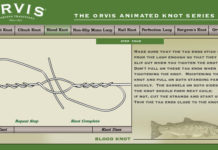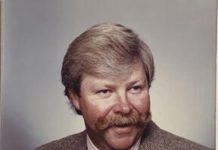AYESHA RASCOE, HOST:
And it’s time to play the Puzzle.
(SOUNDBITE OF MUSIC)
RASCOE: Joining us is Will Shortz. He’s puzzle editor of The New York Times and puzzlemaster of WEEKEND EDITION. Good to talk to you, Will.
WILL SHORTZ, BYLINE: Good morning, Ayesha.
RASCOE: So remind us of last week’s challenge.
SHORTZ: Yes, it came from Blaine Deal, who conducts a weekly blog about my NPR puzzles. I said take the name of an island. Move its first letter two spaces later in the alphabet. Reverse the result, and you’ll have the name of another island. What islands are these? And the answer is Guam and Maui.
RASCOE: And so we received about 1,100 correct responses. And the winner is Jane Ruseski of Morgantown, W. Va. Congratulations, Jane, and welcome to the show.
JANE RUSESKI: Thank you. It’s a pleasure to be here.
RASCOE: So – and, Jane, I understand you are not the first person in your household to win the Puzzle.
RUSESKI: That’s correct. My husband was selected in July of 2021.
RASCOE: Oh, my goodness. So this is like – this is like a family legacy. I’m trying to think – this is like Venus and Serena Williams. This is like family.
(LAUGHTER)
RUSESKI: It is. We play the Puzzle together. So, yeah, it’s a team effort.
RASCOE: So this time, it isn’t a competition between you and him, who would do better.
RUSESKI: I think he’s going to beat me out. He did really well. Lulu called him brilliant.
RASCOE: No, I think you can do it. I think you could take him. Are you ready to play the Puzzle?
RUSESKI: I am ready to play.
RASCOE: OK. Take it away, Will.
SHORTZ: All right, Jane and Ayesha, I’m going to give you two words starting with F. Think of a third word starting with F that can follow my first one and precede my second one, in each case to complete a compound word or a familiar two-word phrase. For example, if I said first and farm, you would say family, as in first family, and family farm.
RUSESKI: OK.
RASCOE: OK. OK.
SHORTZ: Here’s No. 1 – founding figure.
RUSESKI: Founding Father. Father figure.
SHORTZ: And father figure. Good job. No. 2 is fossil filter.
RUSESKI: Fuel filter, fossil fuel.
SHORTZ: You got it. Forbidden fly.
RUSESKI: Fruit fly and forbidden fruit.
SHORTZ: You got it. Fantasy field.
RUSESKI: Fantasy field.
SHORTZ: And fantasy is sports-related.
RUSESKI: Fantasy football, football field.
SHORTZ: You got it. Fast – F-A-S-T – and fight.
RUSESKI: Fast food and…
SHORTZ: You got it.
RUSESKI: Food fight.
SHORTZ: Food fight. Yeah, yeah. Fire – F-I-R-E – and fishing.
RUSESKI: Fly fishing and firefly.
SHORTZ: You got it. Flash frame.
RUSESKI: Flashlight? No.
SHORTZ: It’s got to start with F.
RUSESKI: Yeah. Flash frame.
SHORTZ: And it’s a form of – that first part is a form of food preparation.
RUSESKI: Flash forward and…
SHORTZ: No.
RUSESKI: Oh, flash fry.
SHORTZ: No.
RUSESKI: Oh.
SHORTZ: And the second part is photography or film-related?
RUSESKI: Oh, freeze frame.
SHORTZ: Freeze frame and flash freeze. That’s a…
RUSESKI: And flash freeze, yes.
SHORTZ: How about this one? Facial film.
RUSESKI: Facial film. Film…
SHORTZ: And here’s your clue for film. You go to the cinema and you watch some shorts at the start, and then you get ready for the…
RASCOE: Oh, OK.
RUSESKI: Oh, feature film.
SHORTZ: Uh-huh.
RUSESKI: Feature film and facial feature.
SHORTZ: That’s it, your eyes or whatever. Here’s your next one. Fun and finding.
RUSESKI: Fun and finding.
SHORTZ: And here’s a clue for your…
RUSESKI: I got it. I’ve got it. Fact finding and fun fact.
SHORTZ: Fun fact, you’re right. And here’s your last one. Freshwater filet.
RUSESKI: Fish water – freshwater fish, fish filet.
SHORTZ: You got it so fast.
RASCOE: Wow. Oh, my – you didn’t even need any help. Before I could even try to compute it, you got it. So I would say you are genius level. I know Lulu said your husband was brilliant. I’m going to say you genius level because you got it.
RUSESKI: Oh, thank you.
RASCOE: How do you feel?
RUSESKI: I feel good. This is very – it’s really great to do this. And I’ve been waiting for the call. And I’m just so happy that I received it. I was a little bummed a couple weeks ago when I was one of 115 correct answers and didn’t get selected.
RASCOE: (Laughter).
RUSESKI: But that puzzle was harder, so I’m glad for this one.
RASCOE: Yes. For playing our puzzle today, you’ll get a WEEKEND EDITION lapel pin, as well as puzzle books and games. You can read all about it at npr.org/puzzle. And, Jane, what member station do you listen to?
RUSESKI: I am a sustaining member of WVPM in Morgantown, W. Va.
RASCOE: I love to hear that. Jane Ruseski of Morgantown, W. Va., thank you for playing the Puzzle.
RUSESKI: Thank you so much.
RASCOE: All right, Will, so what is next week’s challenge?
SHORTZ: Yeah, it’s a fun, not too hard challenge from listener Christopher Raymond, of Poughkeepsie, N.Y. It’s based on something his 7-year-old son, Charlie, noticed. Take an abbreviation found in text messages. Reverse the first two letters, and the result sounds like something else often found in text messages. What are these things? So again, an abbreviation found in text messages. Reverse the first two letters, and the result phonetically sounds like something else often found in texts. What are these things?
RASCOE: When you have the answer, go to our website, npr.org/puzzle, and click on the Submit Your Answer link. Remember, just one entry, please. Our deadline for entries is Thursday, June 2, at 3 p.m. Eastern. Don’t forget to include a phone number where we can reach you. If you’re the winner, we’ll give you a call. And if you pick up the phone, you’ll get to play on the air with the puzzle editor of The New York Times and puzzlemaster of WEEKEND EDITION, Will Shortz. Thanks, Will.
SHORTZ: Thanks a lot, Ayesha.
(SOUNDBITE OF MUSIC)
Copyright © 2022 NPR. All rights reserved. Visit our website terms of use and permissions pages at www.npr.org for further information.
NPR transcripts are created on a rush deadline by an NPR contractor. This text may not be in its final form and may be updated or revised in the future. Accuracy and availability may vary. The authoritative record of NPR’s programming is the audio record.
Credit: Source link































